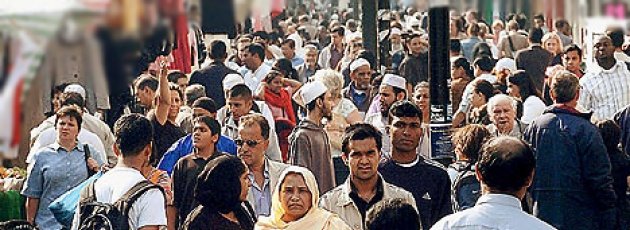- Home
- News & Blogs
- About Us
- What We Do
- Our Communities
- Info Centre
- Press
- Contact
- Archive 2019
- 2015 Elections: 11 new BME MP’s make history
- 70th Anniversary of the Partition of India
- Black Church Manifesto Questionnaire
- Brett Bailey: Exhibit B
- Briefing Paper: Ethnic Minorities in Politics and Public Life
- Civil Rights Leader Ratna Lachman dies
- ELLE Magazine: Young, Gifted, and Black
- External Jobs
- FeaturedVideo
- FeaturedVideo
- FeaturedVideo
- Gary Younge Book Sale
- George Osborne's budget increases racial disadvantage
- Goldsmiths Students' Union External Trustee
- International Commissioners condemn the appalling murder of Tyre Nichols
- Iqbal Wahhab OBE empowers Togo prisoners
- Job Vacancy: Head of Campaigns and Communications
- Media and Public Relations Officer for Jean Lambert MEP (full-time)
- Number 10 statement - race disparity unit
- Pathway to Success 2022
- Please donate £10 or more
- Rashan Charles had no Illegal Drugs
- Serena Williams: Black women should demand equal pay
- Thank you for your donation
- The Colour of Power 2021
- The Power of Poetry
- The UK election voter registration countdown begins now
- Volunteering roles at Community Alliance Lewisham (CAL)
Multiculturalism: Our difference is our strength
Speeches like the Prime Minister’s plea to the Security Summit in Munich about multiculturalism, rather than helping to bring about a more cohesive society, gives the ordinary citizen more to worry about. However his Deputy made good some of the damage in Luton last week when he said we need to work together not apart; Writes broadcaster and journalist Alexander Tetenta.
Rainbow towns are springing up across the country and maybe there is something to be said for the “Big Society” idea, but our 'Eton old boy' Prime Minister definitely has more thinking to do, as was evident by his recent ham-fisted approach to attract a wider buy-in to the ‘big society’.
The attacks on multiculturalism may not have taken into account the fact that British influence has been intrinsically carved into the history and cultures of many nations across the world.
It is therefore not surprising that these nations now impact the history and culture of Britain, and that the extent of global interconnectedness has become more evident through immigration and the globalised mass media.
Presently, we need not leave the comfort of our homes or the familiarity of our campuses in order to understand international society, and realise that beyond our walls there are people who wish to live in a world where our difference becomes our strength.
Therefore seeking to exalt Western democratic ideals and British liberal values should not be delivered in such a way as to short change multicultural citizens in this country or those abroad who also subscribe to these ideals.
As we have seen in recent weeks, the acceptance and the willingness to pursue these values have taken countries to civil war in their battle to champion democracy.
As the universal campaign for human rights continues, it opens a window in which a connected yearning for equality and democratically run societies is clearly visible – globally a form of multiculturalism which should give us cause to celebrate.
Our leaders should not seek to create anger, fear and mistrust; stirring up divisions in society by seeking to separate communities.
“We have even tolerated these segregated communities behaving in ways that run counter to our values”, the Prime Minister said.
The emphasis that certain communities are considered segregated and are to be tolerated, rather than be accepted or integrated currently lies at the core of the contradiction of unity and equality.
To solve some of the ‘segregation’ issues there must be a strengthening of a shared, cohesive national identity; and institutional insistence on equal life-chances and equal starting points for all, regardless of ethnicity or religion.
Minority communities must embrace mainstream cultures and values, but a better understanding of their cultural backgrounds should also be fostered and honoured.
The state must be active in creating the conditions that bring communities together, taking a ‘muscular’ approach to embrace a nation which is multicultural, in a world which it reflects.
The reference to a “muscular” approach to “liberalism” and the emphasis on religion or ethnicity has done nothing to address the fact that government policies are alienating even more people from society, as the effects of the cuts appear to be harder on minority communities.
Finally, there is no excuse for extremism, neither could excuses exist for a lack of understanding or societal agreement on how to get to the root causes of cultural segregation, even as rainbow towns and cities emerge.
Alexander Tetenta
